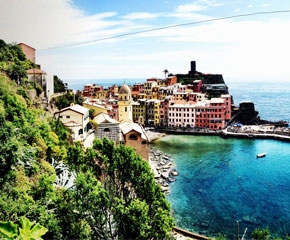More work, profit and productivity: if Italian production emigrates, it starts to earn. Brands that have moved abroad do not lose their national identity. According to the study, Italian companies, acquired by multinational corporations, begin to develop much more actively.
Over the past ten years, almost 500 Italian enterprises have passed into the hands of foreign owners, while they have increased employment, improved productivity, increased profits.

And all this, without losing national identity. Example: Valentino today belongs to the emir from Qatar, but everyone continues to believe that this brand is exclusively Italian. Universal stereotypes are broken by a study conducted by the Italian research association Prometeia.
It is widely believed that as soon as the historically established brand Made in Italy “changes citizenship”, it immediately loses value (and jobs) for the Italian economy.
Of course, there is some truth in this, but at the same time the opposite is true. According to the Prometeia study, “The Impact of Foreign Acquisition on the Activities of Italian Enterprises,” from the late nineties to the present day, companies acquired by foreign corporations have achieved fairly high rates: their income is growing at an average rate of 2.8% per year; employment rate - by 2%; productivity - by 1.4%.
“By becoming part of transnational groups,” the report states, “such companies didn’t just increase sales by entering new markets, or improve productivity by introducing more advanced labor management systems. It is much more important that the transfer to foreign control did not lead to "increasing unemployment. On the contrary, as a rule, new cash receipts and expansion of production require an increase in the number of workers."

It should be added that large multinational corporations often spend huge sums on various scientific research and innovations (an area in which Italy has been investing much less for many years than Germany or France). Their share in the overall picture of the country is about 24%, despite the fact that only about 7% of all Italian labor resources work for them. And one more thing: transnational corporations managed to reach 16.4% of the total volume of production in the country and 13.4% of value added.
Therefore, the transfer of ownership does not necessarily lead to a decline in the production system. On the contrary, at the global level, the ability of a company to attract investment from abroad is a necessary condition for competitiveness.
It is enough to recall that if in 1990, at the beginning of this global economic transformation, foreign direct investment amounted to about 1/10 of world GDP, today they have reached almost one third of it.
And on the other hand, more than half of Chinese exports are made up of products manufactured by transnational corporations in China. Anyone who decides to attract foreign investment to their territory is more likely to win in a market war.








